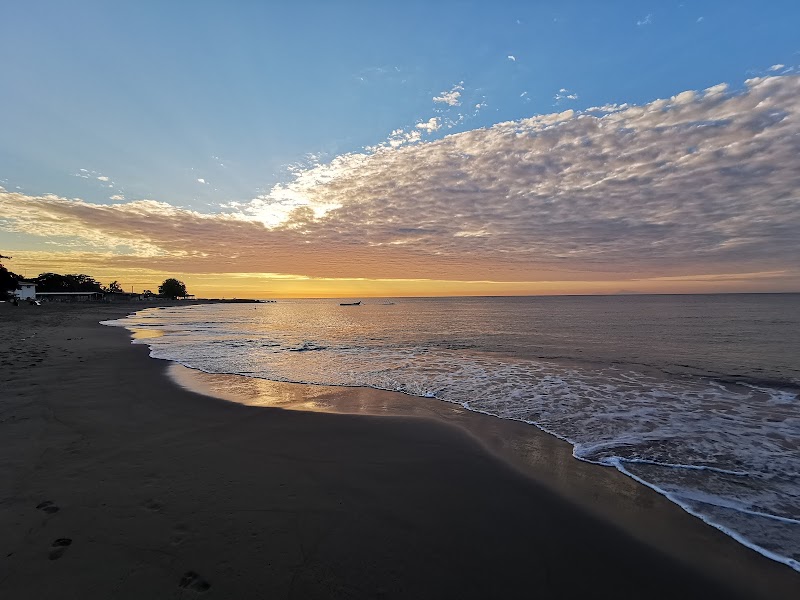
Maumere Cultural Festival: Experience East Nusa Tenggara’s Living Heritage
Every August, the Maumere Cultural Festival breathes life into the town of Maumere on Flores Island, showcasing rich traditions through vivid performances, crafts, and community rituals. This festival offers an inspiring blend of cultural discovery and practical adventure for travelers eager to connect with East Nusa Tenggara’s vibrant heritage.
Wear sturdy walking shoes
Maumere’s streets and nearby village paths are uneven and sometimes cobbled, so solid footwear will keep you comfortable and safe while exploring festival sites.
Stay hydrated throughout the day
The tropical heat can build quickly; bring a refillable water bottle and plan breaks during early morning or late afternoon to avoid midday sun.
Learn basic local greetings
Using simple phrases in Bahasa Indonesia or local dialects encourages positive interactions with villagers and performers.
Book accommodation in advance
The festival draws both locals and tourists, so arrange lodging early to secure convenient places near central festival venues.
Maumere Cultural Festival: Experience East Nusa Tenggara’s Living Heritage
Each August, Maumere pulses with life as the Maumere Cultural Festival takes center stage, transforming this coastal town into a vibrant hub of tradition and artistry. The festival invites you to walk through lively streets where the scents of clove and tropical flowers mingle with the rhythm of drums and voices raised in song. Held on the island of Flores, in East Nusa Tenggara, the event offers a rare chance to witness both age-old rituals and contemporary performances that narrate the lives of local communities.
Festivities take place at several open-air venues and village squares, giving visitors an intimate glimpse of Flores' diverse cultural expressions—from traditional Ikat weaving demonstrations to expressive dances mimicking nature’s movements. Expect performances featuring dancers dressed in bright costumes, each telling stories of ancestral spirits and ocean voyages. This cultural engagement is firmly grounded in the rhythms of everyday life here, highlighting fishing, farming, and artisanal crafts that sustain the island’s people.
Though the atmosphere is festive, planning your visit demands practical foresight. Maumere's tropical heat can feel insistent by midday, so early morning or late afternoon attendance is advisable. Comfortable walking shoes are a must; the cobbled streets and uneven village paths may challenge the unwary. Hydration is key—small shops around the town sell bottled water, but bring a refillable bottle to respect local sustainability efforts.
The festival is more than spectacle. It invites you to engage directly: try your hand at ikat dyeing, savor freshly grilled seafood, or join a guided tour to nearby traditional villages where the cultural thread stretches through everyday life. Beyond the festival, Maumere's coastal backdrop offers scenic hiking opportunities, where forested trails rise gently to sights of the Flores Sea, whose currents seem to dare you to venture closer.
Participating in the Maumere Cultural Festival means stepping into a community fiercely proud of its heritage, where nature and culture interact like old friends in an ongoing dialogue. Balanced between celebration and authenticity, the festival presents an adventure that respects rather than appropriates, urging you to listen and learn while exploring. With clear planning and eager curiosity, a trip here is both an immersion and an invitation to witness East Nusa Tenggara’s living, breathing cultural heart.
Nearby Trips
All Adventures
Boat Charters
Water Activities
Adventures near Maumere, East Nusa Tenggara
Discover the unique and memorable adventures that make Maumere, East Nusa Tenggara special.
Frequently Asked Questions
When exactly does the Maumere Cultural Festival take place?
The festival typically occurs each August, running for around a week with multiple events that highlight Flores' cultural traditions.
Is the festival suitable for children and families?
Yes. The festival areas are generally family-friendly with many informal, interactive activities like craft demonstrations and gentle outdoor walks.
Are there guided tours available during the festival?
Several local operators offer guided cultural tours during the festival, providing deeper insight into the rituals, performances, and village life beyond the main events.
What languages are spoken at the festival?
Bahasa Indonesia is the official language used during events, but local dialects also feature prominently. English is occasionally spoken by guides and some vendors.
Can visitors purchase traditional crafts at the festival?
Absolutely. Market stalls feature handmade ikat textiles, wood carvings, and other local crafts, giving you a chance to support artisans directly.
What environmental considerations should visitors keep in mind?
Respect local customs by limiting plastic waste, staying on marked paths, and asking before photographing individuals. The community values responsible tourism to preserve both culture and nature.
Recommended Gear
Comfortable walking shoes
Protects feet on uneven, sometimes slippery village paths and festival grounds.
Refillable water bottle
Keeps you hydrated in tropical conditions while reducing plastic waste.
Lightweight rain jacket
Useful during unpredictable afternoon showers outside festival peak season.
Wide-brimmed hat and sunscreen
Necessary for sun protection during midday heat when attending open-air events.
Local Insights
Hidden Gems
- "The cliffside viewpoint near Wuring village offers sweeping views of Maumere Bay, rarely crowded during festival days."
- "Small family-run ikat workshops outside the main town provide hands-on weaving experiences."
Wildlife
- "Watch for the vibrant green Wallace’s hanging parrot flitting among town trees."
- "Coastal mangroves near festival sites shelter crabs that scuttle with surprising agility."
History
"Maumere’s cultural traditions trace back centuries, shaped by indigenous communities, Portuguese influence, and maritime trade routes. The festival revives stories of ancestral spirits and seafaring livelihoods that remain vital today."
